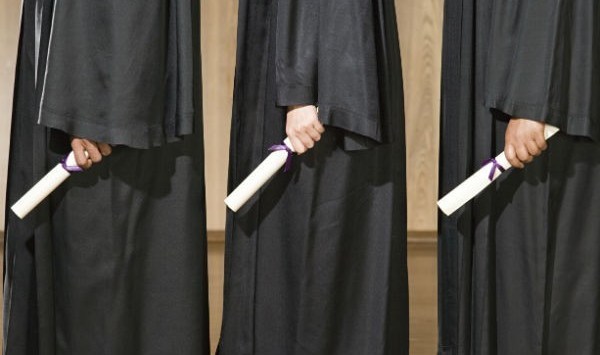

Australia’s education system isn’t gearing up graduates with the right skills to support the nation’s small businesses.
Small businesses account for more than 40% of the Australia’s GDP and with more than 2 million small and medium sized enterprises operating in Australia, they’re a major source of employment. By improving small business efficiency, the whole economy gets a boost.
But many universities are missing out on this huge opportunity to make small businesses, which account for 88% of all companies in Australia, more innovative.
Data is key
One way to improve innovation is by helping small business owners and their advisors use data to get a better reading on what’s going on in their companies.
By automating processes and giving them access to real-time data, owners and advisors can get an on-the-pulse view of their business. It also frees them up to spend more time working on the business, rather than being bogged down in it.
Developing a better understanding of data can help business owners make better decisions. Better decisions means there is potential to make more money. The more profit, the more cash there is to invest. Bottomline: more money to invest is a boon for the economy.
Universities are starting to see this. As Xero’s head of accounting and an accountant in practice, I now guest lecture at Macquarie University. I am also working with the faculty of business and economics to improve research on small business and transform the curriculum so students finish their degrees with the right skills.
Earlier this month, the Group of Eight Australia universities also called on the federal government to boost small business research as part of its training system review.
“It seems to be forgotten that while large businesses are important engines for research and development and innovation, organisations with more than 200 employees make up less than 1% of Australian businesses,” the group said.
Small businesses with up to four employees represent 88% of all companies, but undertake less than 5% of the economy’s R&D.
For profitable firms, Xero estimates adding one tech tool has a $22,000 impact on net profitability. But only 11% of small businesses are actually actively investing in tech.
Small business and universities need to work together
In order to boost innovation in Australia, small business needs to be at the centre of policy discussion and universities need to get more involved in the sector.
Promoting industry and academic collaboration is one way universities can help develop graduates who have balanced knowledge about both small and big business, as well as delivering entrepreneurial education which promotes innovative thinking.
About 10 years ago, I would hire TAFE students over university students because they had practical experience. But with automation, that’s shifted. I need my staff to be able to look at a set of accounts, apply analytical thinking to the numbers and understand them.
Today’s students are using technology all the time but their degrees still have them manually crunching numbers. This is not to suggest that technical skills are not important. They are, but they should be taught utilising the technology platforms graduates will use on the very first day they enter the workforce.
Universities need to replicate the processes and automation trends that are playing out in the accounting sector.
Mobile, the internet and the cloud have disrupted the way accountants operate. There were once four distinct parts of the sector including, tax, accounting, finance and auditing.
But with automation we’re now seeing these disciplines, which in the past were siloes, diverging. It means SME advisors have to go beyond tax advice to offer services like budgeting, forecasting, pricing and real-time advisory.
Macquarie University is working to implement an agile framework that allows it to update its degree programs in business and economics to align it with what’s going on in the industry. It’s also recruiting industry experts to consult on the programs and teach students to make sure they get it right.
Universities need a big reality check. The majority of their students will end up working for small businesses, which employ 65% of all working Australians, but many of these students have no idea how fledgling companies operate. They’re well versed in management theory and big business principles but couldn’t tell you how to formulate and track a budget to ensure a business has sufficient cash flow.
The commerce degree is a solid qualification but it’s very focused on the big end of town; it needs to be re-calibrated to include small business theory and how these enterprises work.
By making universities more relevant, graduates will be set to help small businesses innovate and grow, which will have a dramatic economic benefit.
James Solomons is head of accounting at Xero Australia.


COMMENTS
SmartCompany is committed to hosting lively discussions. Help us keep the conversation useful, interesting and welcoming. We aim to publish comments quickly in the interest of promoting robust conversation, but we’re a small team and we deploy filters to protect against legal risk. Occasionally your comment may be held up while it is being reviewed, but we’re working as fast as we can to keep the conversation rolling.
The SmartCompany comment section is members-only content. Please subscribe to leave a comment.
The SmartCompany comment section is members-only content. Please login to leave a comment.